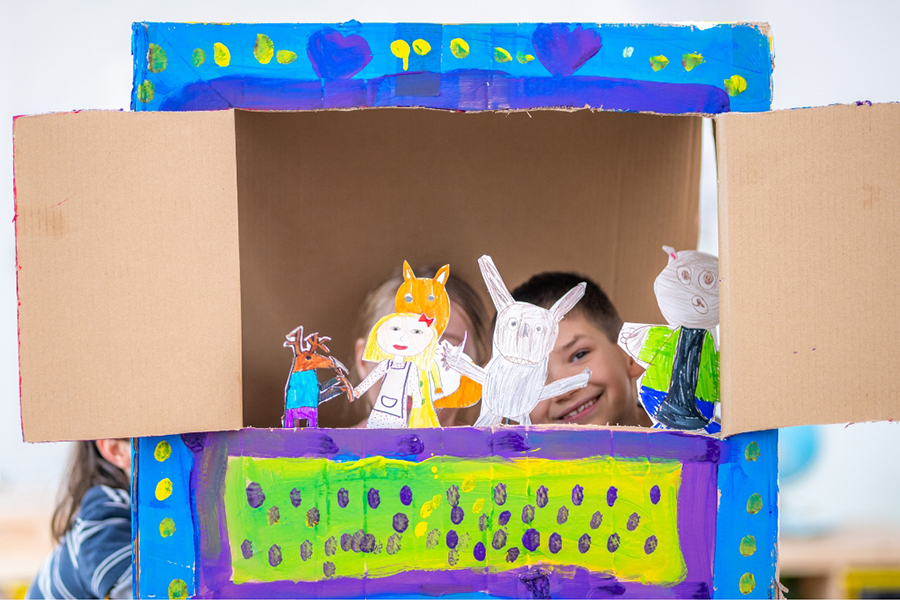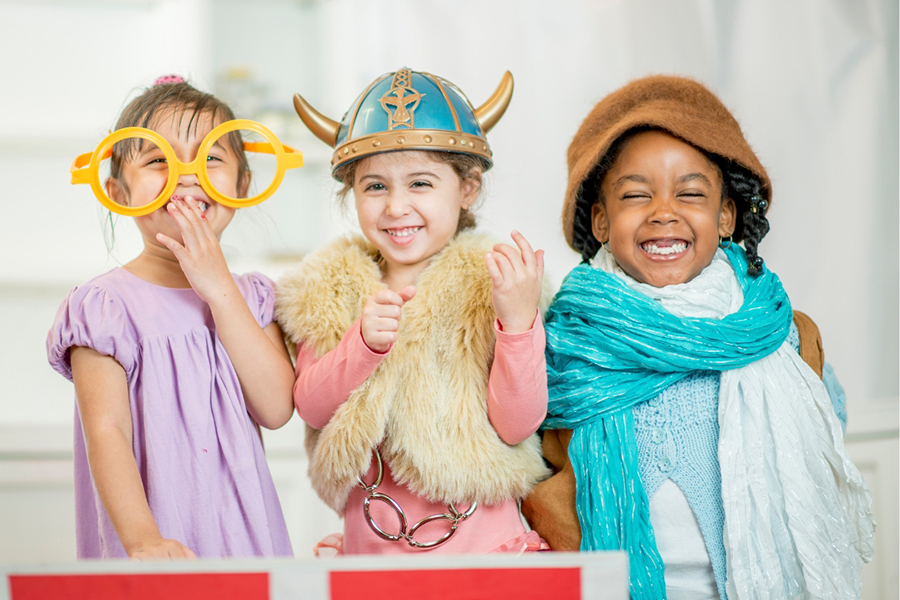Young children have big feelings. One of the essential concepts that children learn in early childhood is to navigate and manage their emotions. Sometimes, ECEs are surprised by these big emotions and can see them as overreactions. The reactions are the result of young children not knowing how to manage their feelings. Imagine an epic toddler meltdown because their sippy cup is the wrong color. To ECEs, this may seem like an overreaction; but it’s not. Big feelings arise because young children don’t know how to express what they’re feeling.
When young children engage in pretend play, they get to express their emotions and explore roles and situations. It is self-directed and reflects what children are experiencing in their daily lives. Inventing characters and scenes, quickly changing roles and situations, they get to practice developing their emotional responses. Young children use pretend play to “practice for life.” The observant teacher notices which scenarios children repeat and scenes that create opportunities for problem-solving. Through these imagination games and role-playing, children learn that other people have different opinions and views. They become aware of opposing perspectives and how to interpret different emotions.
Brief Overview of the Development of Pretend Play
Pretend play begins with toddlers imitating what they see and replicating it. When we see toddlers replicate something, like copying the act of eating or drinking, this develops into solo pretend play, such as taking a sip from an empty cup or pretending to talk into a phone using a block or toy. Next, children will include others in their pretend play. A classic example is inviting others to share their mud pies or other sandbox treats. Children then begin acting out sequences they see at home, such as caring for their stuffed animals. As children get older, these sequences will become more complex.
Briefly, the social skills that children develop when engaged in Pretend Play are:
- Exploring creative problem-solving
- Learning to negotiate and resolve conflict independently
- Taking the feelings of others into consideration
- Analyzing social cues and reading body language
- Asking and responding to relevant questions
- Describing actions, setting, or purpose
Pretend Play happens everywhere in an early childhood setting both inside the classroom and on the playground.

Tips:
Inside the Classroom, keep the pretend play/dress-up area open-ended. Bought accessories for pretend play is not necessary. The more open-ended the areas are, the more children can use them to develop their scenarios. Rather than bought items, use empty boxes, old clothes, pieces of fabric, big blocks, etc.
Outside, pretend play happens in the sandbox, on the play structure, and everywhere children run around.
Great Big Boxes are wonderful spaces for dramatic play. Bring them to your setting, inside or outside, and watch what your students come up with!
In my blogs, I often emphasize the value of observing children. Observing young children during pretend play is an excellent opportunity to hear and see what your students think and feel. Your support for their emotional development is something that they carry with them throughout their lives.
Explore the power of nurturing emotional growth and join my workshops for further insights and strategies.
Elevate your understanding of early childhood education and child development with my engaging preschool education workshops tailored for both teachers and parents. These workshops provide valuable insights, practical strategies, and effective tools to enhance your role in nurturing young minds. Whether you’re an educator or a parent, these sessions aim to empower you with the knowledge and skills essential for fostering a positive learning environment. Dive deeper into the world of preschool education and child development by exploring my workshop offerings. For more valuable content and updates, follow me on Instagram and connect with me on LinkedIn. #EarlyYearsConsult
#EarlyChildhoodEducation #ChildDevelopment #PreschoolWorkshops #EducatorServices #ParentingTips #LearnAndGrow

